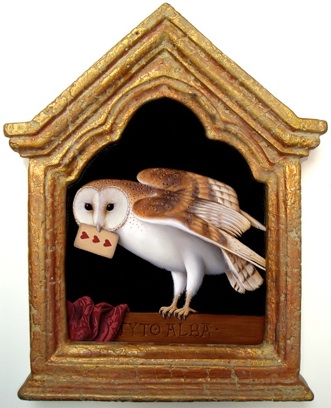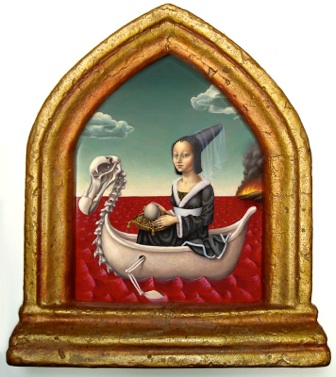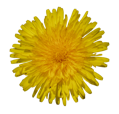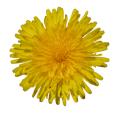evolution of language


words and grammar
Two observations here: and these do not come from the perspective of a linguist (which I am clearly not). First, many modern languages have similar words; and new words are often passed from one language to another along with the things and doings that they coordinate. Thus even Estonian, which is not in the Indo-European language family along with English, Spanish, Italian, German, etc. has many similar words, even if spelled differently. But where languages differ even more is in the way words work together, i.e. what we call grammar. You can see that even in structural differences between the Indo-European languages which are conserved even as new elements, the words, are incorporated into it. Estonian grammar is very different from all of these, as I also understand is the case with many Asian, Polynesian, etc. languages.
Thus you see conservation and change again; the organization of any language persists even as the structure changes (grammar v/s vocabulary)
a pleasure of domains
The more domains we generate and live, the more intricate and varied our lives become as we flow among these many domains. Further, within each domain we develop further and further refinements, or distinctions, and hence generate increasing intricacy with the domains. With this intricacy it becomes relevant that we find the circumstances and the people with whom we can enjoy the pleasure of intimacy within those domains.
We find ourselves enjoying the company of those who have developed a similar depth of knowledge, or expertise any any domain. Hence we form many groups, and the number of domains that we can (given the time it takes) develop a high level of understanding in is limited. Our groupings tend to become somewhat exclusive. Of course whether they exclude or invite, is very much a matter of emotion as well as beliefs about “the other”.
We now find yet another pleasure, that of integrating domains, either through the mapping of similarities among them, or through generating new domains that harmonize, or simplify our regard of all we know.
language is a social phenomenon
As presented in the previous units, language as we now live it could only have arisen in a situation that conserved a long space for learning in a social context of love, trust and intimacy between the members of a group. Such learning would then be passed on from generation to generation as the children grew in a the context of the language that was part of the relational dynamics of that group.
Furthermore, in the plastic playful behaviour of the young, new notions and new words could arise and enter the vocabulary of that group, particularly as the conditions warranted such. You might notice that even nowadays, it is the mostly the youth who invent new words that are taken up by the culture. We call this “slang” for a while, and then it becomes accepted, and enters the dictionary.
Of course there are other ways news ideas and new words are invented... I’m sure you can think of several that did not exist event a decade ago!
humility
arrogance
a necessary fluidity
Living system realizes the different identities that define them as different dimensions of simultaneous or successive structural couplings, orthogonal to the fundamental structural coupling in which the living system realizes its autopoiesis. As a result, these different cognitive domains may appear or disappear simultaneously or independently according to whether the different structurally intersecting unities that specify them integrate or disintegrate independently or simultaneously. Thus, when a student graduates, the cognitive domain specified by the operation in the domain of structural coupling that defines the identity "student" disappears together with the disintegration of the student, or, when a bachelor marries, the cognitive domain that the identity "bachelor" defines as a domain of operational coherences in structural coupling, disappears together with the disintegration of the bachelor. Conversely, when a student graduates and a bachelor marries, the identities "graduate" and "husband" appear with the corresponding cognitive domains specified by the operational coherences that these identities entail.
It follows, therefore, that a living system may operate in as many different cognitive domains as there are different identities that the different dimensions of its structural coupling allow it to realize. It also follows that the different identities that a living system may realize are necessarily fluid, and change as the dimensions of its structural coupling change with its structural drift in the happening of its living. To have an identity, to operate in a particular domain of cognition, is to operate in a particular domain of structural coupling.
Maturana, 1988 Ontology of Observing


dictionaries
Have you ever thought about how dictionaries, which we now use as a reference for what words “really” mean, came into existence? Well, the clue lies in the multitude of definitions that some words have. As you will have realized, words have meaning according to context, which is a way of speaking about domains without realizing that they are each a different world, with many connections to and congruencies with each other. Thus the different definitions refer to the different domains in which those words have evolved their meaning. Or mostly, that should be past tense. The major work of generating the dictionaries of the world happened when they were first produced; people assembled the multitudes of meanings that were then in use. I think the first people to think of generating dictionaries must have had a great competence in abstracting meaning from process.
Of course there is value to being able to point to a given definition so that fewer mistakes occur. Nonethless, the evolution of language continues, and I am very curious as to how the social media based references will evolve. What will we gain?What will we conserve and what will we discard?
unknowability of the substratum
Without observers nothing can be said, nothing can be explained, nothing can be claimed,... in fact, without observers nothing exists, because existence is specified in the operation of distinction of the observer. For epistemological reasons, we ask for a substratum that could provide an independent ultimate justification or validation of distinguishability, but, for ontological reasons, such a substratum remains beyond our reach as observers, All that we can say ontologically about the substratum that we need for epistemological reasons, is that it permits what it permits, and that it permits all the operational coherences that we bring forth in the happening of living as we exist in language.
Maturana, 1988 Ontology of Observing
Second, we do not learn grammar as a set of rules. We learn it as a manner of living with others with subtleties in relationships. Further there are also regularities, (you could say isophors of form) in how different things are connected to sequence (time) or location and organization (passing, dividing, ownership, etc.). These are the regularities in how we vary the words, i.e. the grammar. The study of grammar is an abstraction of something that was already happening. And I personally claim that trying to teach a language through teaching the vocabulary and the grammar requires the learner to generate understanding through something akin to “reverse engineering”.



Story: is there a loss of emotional diversity?


